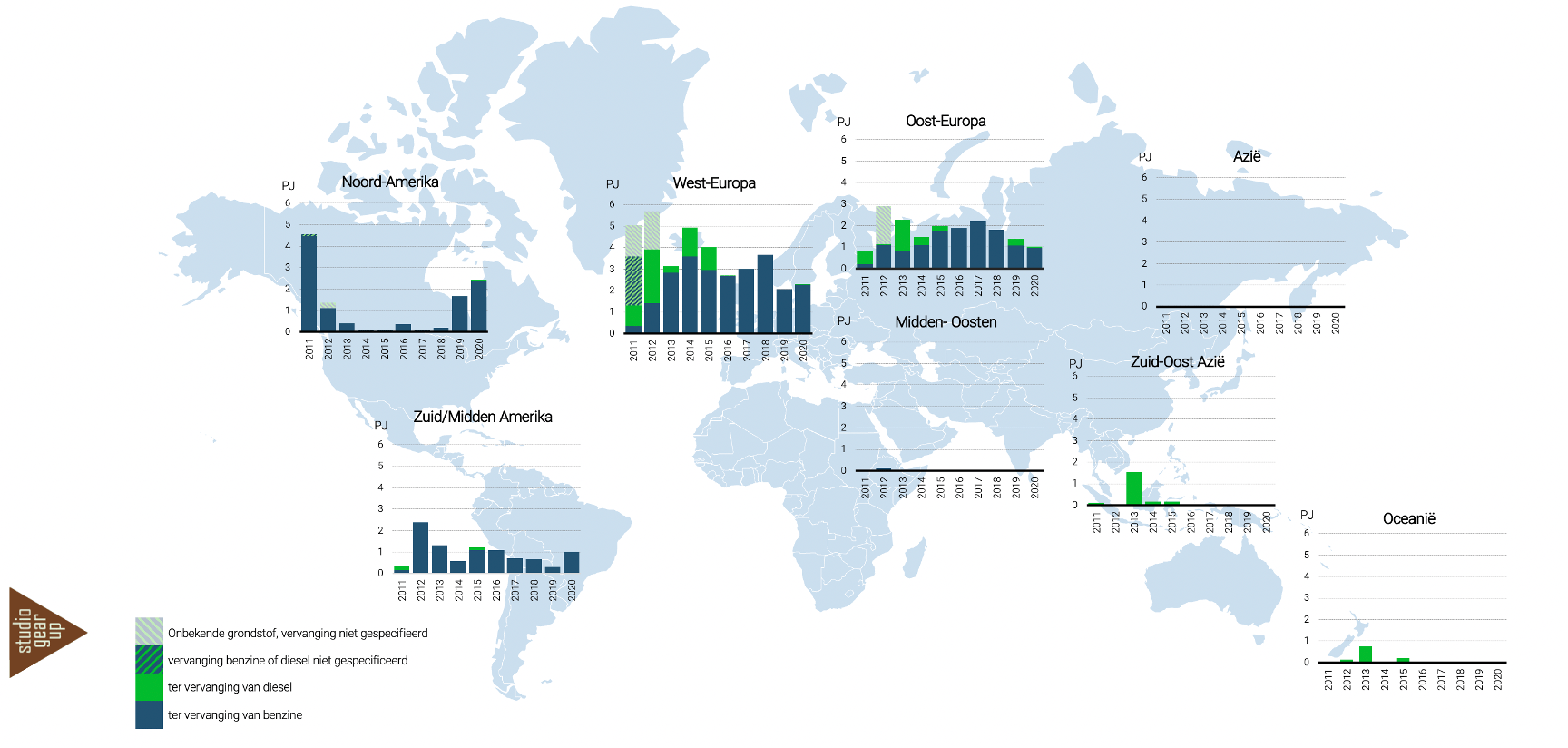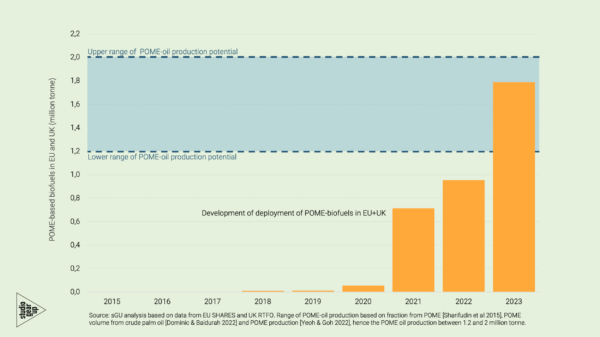For: Dutch Ministry of Infrastructure and Water Management, Department Sustainable Mobility (Min IenW/DuMo)
[July – August 2021]
During the debates in Parliament of the required changes to the Wet Milieubeheer (Law Environmental Management) to implement the Renewable Energy Directive one member of Parliament submitted a motion in which the phase out as of 2023 of food and feed crop based biofuels in the Netherlands was requested.
studio Gear Up was asked by the Ministry to execute a research study, paying attention to the following scenarios:
- is ending the deployment of food and feed crop based biofuels by 2023, or any later year possible?
- which consequences will this have on the annual (growing) mandate for renewable energy in transport?
- how will this impact the reduction of CO2-emissions?
- Are substitute biofuels or renewable fuels of non-biological origin available to fill the volume of phased out food and food crop based biofuels?
The report (in Dutch) is available here.
In a letter to Parliament of 8 October 2021 (in dutch), State Secretary Van Weyenberg, also addressed the findings of the study. In the letter he adopted the conclusions of the report:
- the concerns with respect to food and feed crop based biofuels, such as deforestation and land use have been addressed in policy in recent years. The crops originate mainly from Europe and North America (see diagram below), where little to no deforestation related to these fuels takes place.
- The biofuels sector works on basis of the cascading principle in which side streams that come avaialble in food of feed production can be used for other purposes: proteins from corn or wheat for feed are separated from the sugars that are used for e.g. ethanol production;
- On short term there is no alternative to back up the phase out of biofuels from food and feed crops. A phase out per 2023 would mean a lowering of the annuale obligation for renewable energy in transport. This leads to an annually lower CO2-emission reduction of 0.4 million tons CO2 due to more fossil fuels in road transport;
- A phase out as of 2023 would require canceling the recently introduced E10 petrol blending obligation;
- at a longer term, from 2027 onwards, alternatives start appearing in the market, mainly due to the increased volumes of advanved biofuels. These are expecterd to be more expensive that food and feed crop based biofuels. Due to the double counting of advanced biofuels the annual obligation percentage needs to be corrected upwards, whihc also leads to higher costs;
- the build up of production capacity in the Netherlands for advanced ethanol is hampered by the Sustainability Framework Bioresources (Duurzaamheidskader Biogrondstoffen), which stats that the deployment of biofuels in light duty transport should be decreased. This increases the complexity of finding sustainable solutions to replace fossil petrol. This has to be seen in a context in which in Europe and in other sectors (such as aviation) the competition for advanced feedstocks is growing.
The State Secretary concludes in his letter: “Phasing out food and feed crop based biofuels woul result, in the absences of alternatives, to a lower annual obligation. This means more fossil and less CO2-reduction. The opposite of what we want to achieve.”




